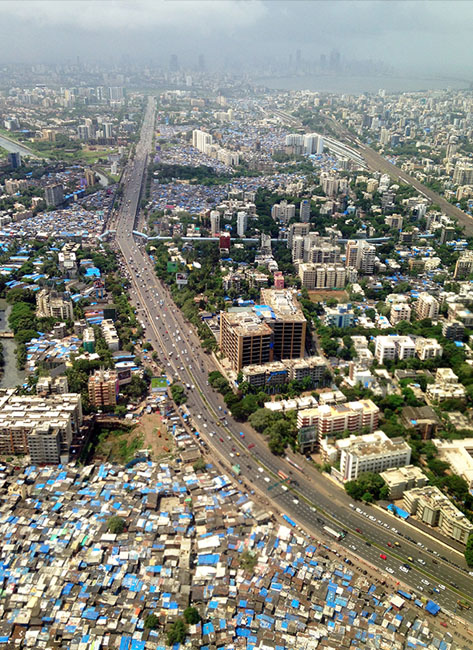De juiste maat
Betaalbare woningbouw in India
DOI:
https://doi.org/10.7480/dash.12/13.4991Samenvatting
Nooit eerder was het zo urgent nieuwe modellen voor betaalbare woningen te ontwikkelen voor de wereldwijd alsmaar uitdijende steden. Goede, betaalbare woningen zijn nodig, zowel om mensen die over weinig tot geen middelen beschikken, in staat te stellen in steden te gaan wonen die voor hen de belofte van een betere toekomst in zich dragen, als om de dreiging van stedelijke segregatie het hoofd te bieden. India houdt zich al sinds het land in 1947 onafhankelijk werd met deze kwestie bezig. Dat heeft geresulteerd in een reeks experimentele woningontwerpen die nog steeds inspireren, maar ook duidelijk tonen dat het bijna onmogelijk is succesvolle en blijvende oplossingen te vinden.
Ondanks Indiaas recente economische successen is de staat onmachtig gebleken, actief en effectief om te gaan met de snelle verstedelijking van het land. Dit heeft geleid tot het ontstaan van megasteden als Mumbai en New Delhi, die dreigen te bezwijken onder de niet aflatende druk van de migratie vanuit het arme platteland. Tegelijkertijd neemt het aantal kleine steden, dat nog sneller groeit dan de metropolen, exponentieel toe. India is nog steeds een overwegend landelijke samenleving, waar ongeveer 30 procent van de totale bevolking (circa 410 miljoen mensen) in stedelijke gebieden woont.1 Naar verwachting zal dat aantal tegen het jaar 2050 echter zijn toegenomen met 500 miljoen mensen.2 Hoewel de vooruitgang in India accelereert, zijn bouw en planning niet in staat gebleken gelijke tred te houden met de vraag. Het gevolg is dat de snelle groei onvermijdelijk tot het ontstaan van grote sloppenwijken heeft geleid. In het huidige India is de opgave huisvesting te verschaffen aan nieuwe migranten en de woonomstandigheden van de stedelingen in de al bestaande, zelfgebouwde informele nederzettingen te verbeteren, dringender dan ooit.



